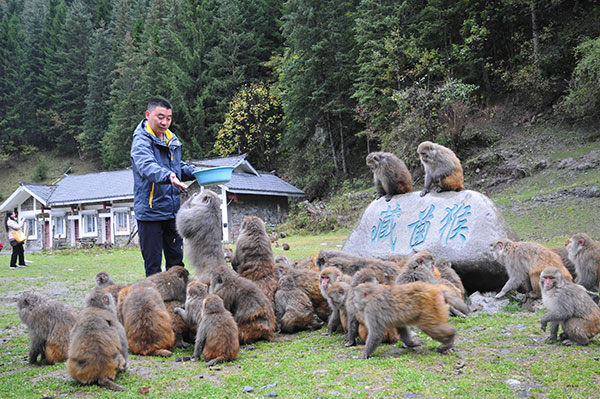 |
|
The Tibetan macaques are frequent visitors to a feeding place where a patrol team member drops food for them in the Dagu Glacier Scenic Area. [Photo by Xu Lin/China Daily] |
During the first two years, they'd grab the food and hide. Some would stand guard while the others ate.
By 2011, monkeys would knock on his office windows if he was late.
He reads books about Tibetan macaques. He learned they generally sleep in caves or trees.
He learned how to identify a leader. It's the strong male who feasts in the center of a circle of food that nobody dares disturb.
Zheng believes he has identified the next leader. He worries the monkeys may not return to him after the usurpation.
"I like to watch their behavior," he says. "They're adorable. And smart."
He recalls watching the monkeys mourn a dead member of their community.
They buried it, he says.
Indeed, it seems we can learn a lot about ourselves by watching our evolutionary relatives.